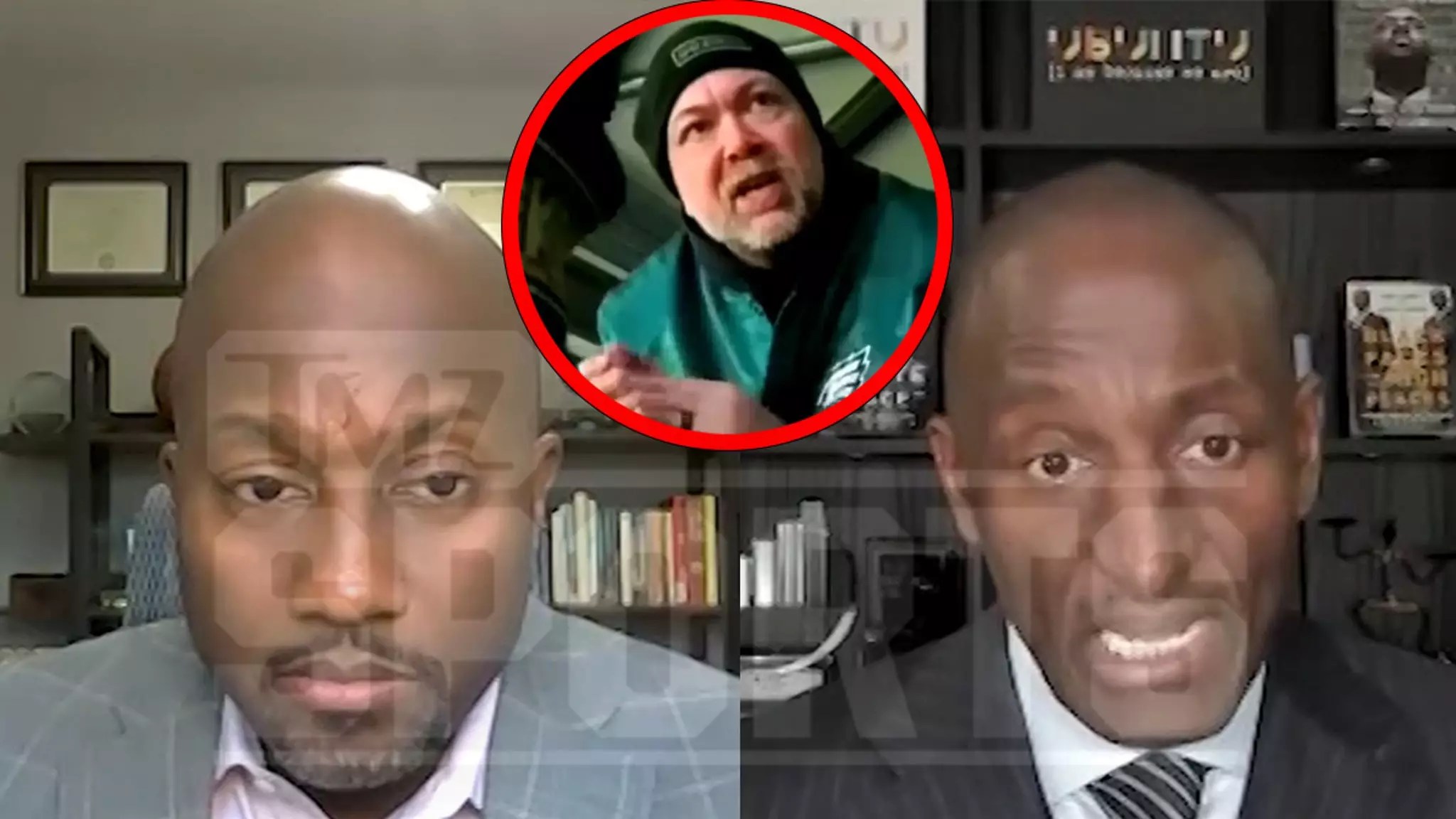In recent weeks, a viral video showcasing an Eagles fan berating a female supporter of the Green Bay Packers has stirred up considerable controversy. The incident, which took place during a game in Philadelphia, quickly escalated from a simple display of poor sportsmanship to a significant issue that has led to the loss of employment for the assailant, identified as Ryan Caldwell. This event has sparked discussions surrounding corporate responsibility, societal reactions to misconduct, and the pervasive online culture that often leads to public shaming.
The dramatic event gained traction online, prompting immediate backlash against Caldwell and his employer, BCT Partners. Co-founders Lawrence Hibbert and Dr. Randal Pinkett, both of whom gained fame on “The Apprentice,” were swift to respond to the unfolding situation. Their company was quickly thrust into the spotlight due to Caldwell’s association, leading them to investigate the matter thoroughly. In statements following the incident, Hibbert expressed his distress at witnessing such appalling behavior tied to his organization, emphasizing the urgency with which they approached the inquiry. The decision to terminate Caldwell was not merely an act of damage control; it reflected a fundamental adherence to the corporate values of BCT Partners.
However, as the company navigated the turbulent waters of online scrutiny, they faced unfair treatment from some corners of social media. Hibbert conveyed the emotional toll the past few days had taken on him and his team, reinforcing their commitment to uphold their corporate ethics amidst the onslaught of negativity.
One of the more intriguing aspects of this incident lies in the broader conversations it has ignited regarding public discourse. Pinkett criticized the online environment that fosters an unforgiving attitude where individuals are swiftly “canceled” without a pathway for redemption. His concern points to the extremes of social judgment found on platforms like Twitter and Facebook, where accountability often morphs into mob mentality, leaving little room for individual growth or forgiveness. The challenge, as Pinkett noted, lies in finding a middle ground where individuals can learn from their missteps rather than being ostracized.
The notion of societal growth post-misconduct is particularly relevant here. Caldwell’s behavior was undeniably reprehensible, but the aftermath should ideally serve as an opportunity for dialogue about the nature of sportsmanship, aggression in fandom, and ultimately, the potential for personal reform. By considering ways to encourage responsible behavior without resorting to outright shaming, society can foster a healthier, more constructive discourse.
As of now, Caldwell has yet to publicly confront the controversy, leaving an air of uncertainty about what he might say and how he views the repercussions of his actions. For BCT Partners and similar organizations, this incident underlines the overwhelming power of public perception and accountability within corporate frameworks. Further, it sheds light on the necessity for organizations to engage in thorough vetting processes and uphold standards of conduct that resonate with their values, especially as they resonate within larger cultural discussions.
This event serves as a cautionary tale about the interconnectedness of social behavior and professional ramifications. As fans and consumers continue to hold public figures and businesses accountable, an opportunity exists for a redefined approach promoting understanding, rehabilitative measures, and the importance of treating others with respect—both on and off the field.







Leave a Reply